Volvo-Eicher Commercial Vehicles (VECV), the joint venture between the Volvo Group and Eicher Motors Ltd., signalled the beginning of a new era in technology in the Indian commercial vehicle industry with the commencement of production at its new engine plant at Pithampur, Madhya Pradesh.
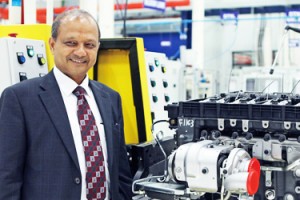
Volvo and Eicher joined forces in 2008 to form VECV, a company which has grown slowly but steadily, over the last five years. Now, with the unveiling of the country’s first-ever Euro-VI engine facility, VECV has reaffirmed confidence in the Indian market, as it continues its unique approach to delivering a superior overall experience in terms of quality, product performance, technology and sales and service to its customers.
The new engine plant has been set up with an initial capacity of 25,000 units per annum in Phase I at an investment of Rs. 375 crores. The capacity will be gradually increased to one lakh units per annum to meet the market requirements with an additional investment of around Rs. 125 crores. The facility was inaugurated by the Madhya Pradesh Chief Minister, Mr. Shivraj Singh Chouhan, along with Industry Minister, Mr. Kailash Vijayavargiya, in the presence of the senior management executives of VECV, Mr. Siddhartha Lal, Managing Director and CEO, Eicher Motors, Mr. Bertil Thoren, representing the Volvo Group on the VECV Board of Directors, Mr. Vinod Aggarwal, CEO, VECV, and Mr. Rajesh Mittal, Senior Vice President & Head, VE Powertrain, VECV.
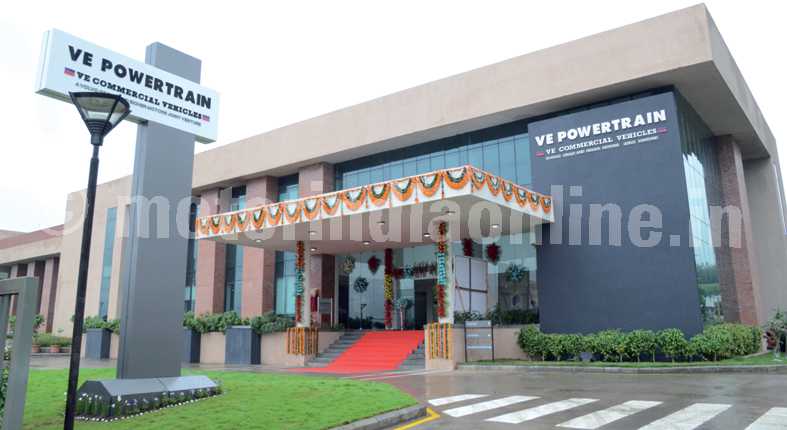
Addressing the media, Mr. Siddhartha Lal said: “This is a moment of great pride for all of us. It puts us in an extremely advantageous position vis-a-vis competition in engine technology. VECV will be manufacturing Euro-VI compliant base engines for meeting automotive requirements of medium duty engines of Volvo Group globally”.
The new facility will be a global hub for meeting the medium-duty automotive engine requirements of the Volvo Group globally for five- and eight-litre engines. The Euro VI-compliant diesel base engines will be supplied to the Volvo Group plant at Venissieux, France, where these engines will be assembled for the Volvo Group Euro VI requirements. The same platform will be adapted to the Euro III and IV engine (BS III/BS IV) technologies to meet the VECV requirements and other Volvo Group requirements for this type of engines in Asia.
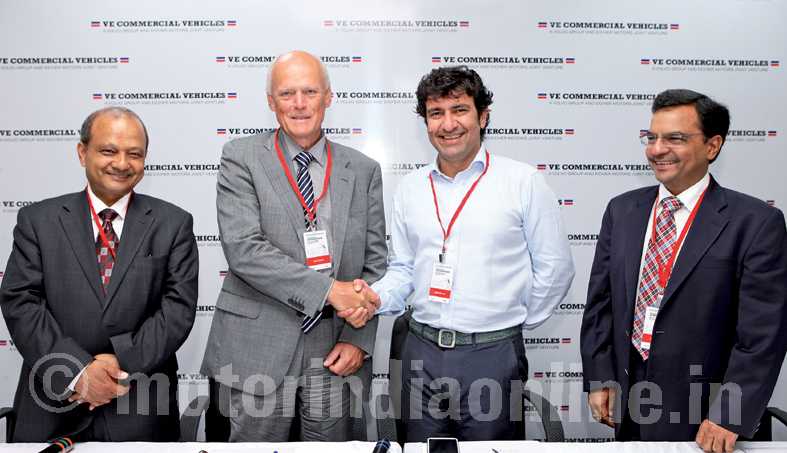
Mr. Bertil Thoren observed: “The global manufacturing hub at VECV is truly a win-win situation for both the Volvo Group and VECV. While on the one hand it will help the Volvo Group reduce costs by sourcing engines from this plant, on the other hand it will help VECV to source best-in-class Euro III and Euro IV engines based on the latest Euro VI Volvo Group technology”.
With 88 per cent of the engine content being sourced from local suppliers, manufacturing in India results in nearly 25 per cent cost reduction when compared to that in Europe.
Advertisement
http://www.youtube.com/watch?v=JvCf0o0N3Yw
The manufacturing plant is based on Volvo Group’s global manufacturing systems and processes and is one of the most modern plants in the country, on par with world-class standards. The set-up has passed the most stringent global quality norms of the Volvo Group and is now equipped to produce highest quality engines meeting the global standards for Euro VI engines. There is a high level of relevant automation with in-process verification on all the critical work stations.
Additionally, this is the first plant which has most flexible final engine assembly line that employs automatic guided vehicles (AGVs) and smart cell technology targeted at manufacturing absolutely zero-defect engines. The smart cell technology is just the second of its kind in the world and can perform an assembly of 166 parts in just 120 seconds. Since the same engines are being adopted for Euro III and Euro IV for Indian customers, it will benefit them in terms of the most advanced technology engines with best-in-class performance.
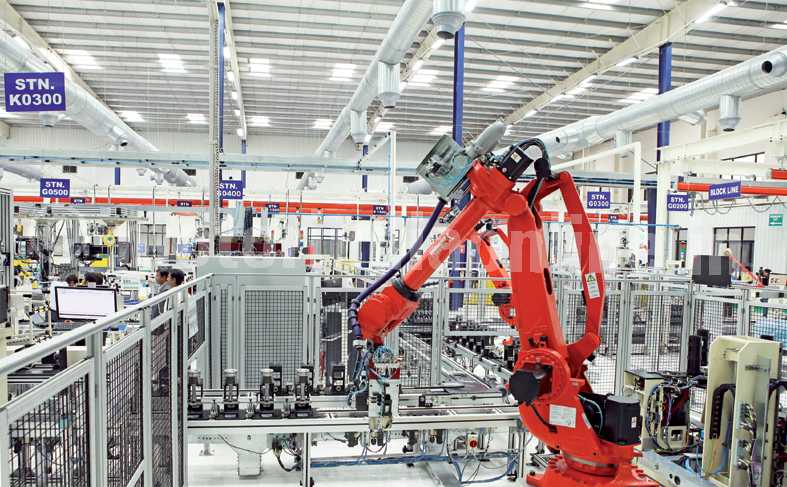
Speaking on the occasion, Mr. Vinod Aggarwal, said: “These engine platforms have a power range of 180 to 350 HP which will provide highest power to weight ratio in the Indian commercial vehicle space. The engines based on Volvo Group technology are extremely durable and reliable and will create tremendous competitive edge for VECV. Above all, this will be another large step towards our vision of becoming a leading CV player in India and other emerging markets by driving modernisation in commercial transportation”.
Half a decade of successful partnership
Since coming together in 2008, Volvo and Eicher have invested heavily in new technology for the Indian market, making best use of the former’s global expertise and the latter’s frugal engineering skills. VECV has been a stand-out of the commercial vehicle manufacturers in the country, having consistently grown over the last few years, growing its market share across segments despite poor market conditions. What is interesting to note that VECV has only been investing over the last five years and expects the real benefits to be reaped in the next five to ten years.
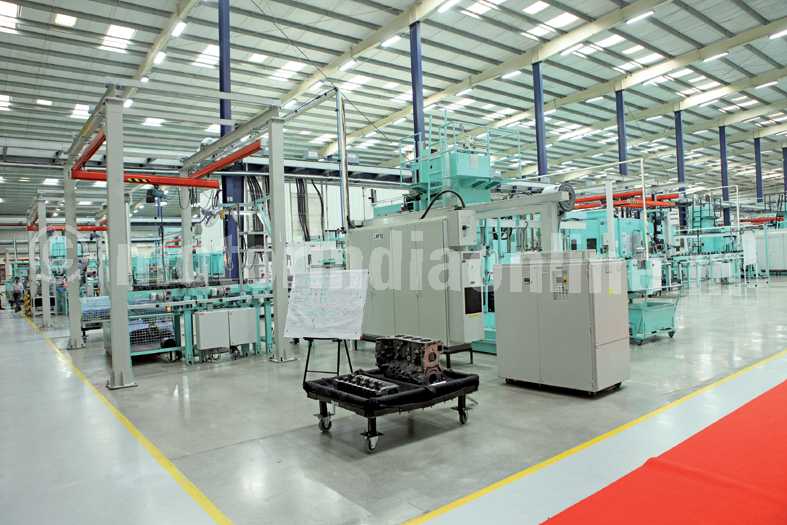
“The journey in the first five years of our partnership with the Volvo Group has been extremely exciting, and we have been able to realize various synergies together. The engine project has been one such perfect example of a successful partnership with them. We have laid a strong foundation over the last five years, and we will start reaping the results of our work in the next five years”, added Mr. Lal.
By setting very clear goals and operating parameters, VECV has been able to put the right systems and processes in place which have begun delivering phenomenal results. The impact of the synergies between the two partners is increasingly visible in the company’s products, distribution, quality and customer satisfaction.
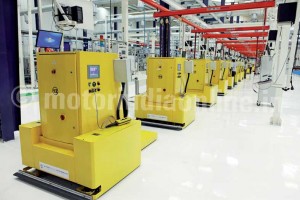
In terms of technology, Euro VI engine regulation is expected to come to India in eight to 10 years’ time. VECV is the first manufacturer to get ready with a manufacturing facility for the same, which also guarantees the best-in-class fuel economy and engine power for its customers. Currently, Eicher produces diesel engines in the range of 80-155 hp which are also being upgraded, thus giving VECV the largest range of engines along with the Volvo technology engines for use in its products.
Since 2008, VECV has invested more than Rs. 1,300 crores in facilities and developments, including its medium duty engine plant, bus body manufacturing plant, reliability lab, engine development centre, state-of-the-art CED paint shop, parts distribution centre and components plant, all of which are situated in Madhya Pradesh, apart from new product development and capacity expansions at its other facilities. The company will invest another Rs. 1,200 crores this year and the next, which would cover the newly opened engine facility, in order to prepare itself for meeting the market requirements in 2015 and beyond.
“Despite the industry slowdown in the last 18 months, we have not cut back even one rupee on our investments, be it in capex, technology, product development or quality. We have gone ahead with our investments in full tilt and when the market comes out of the downturn, we will be in a very strong position”, observed Mr. Lal.
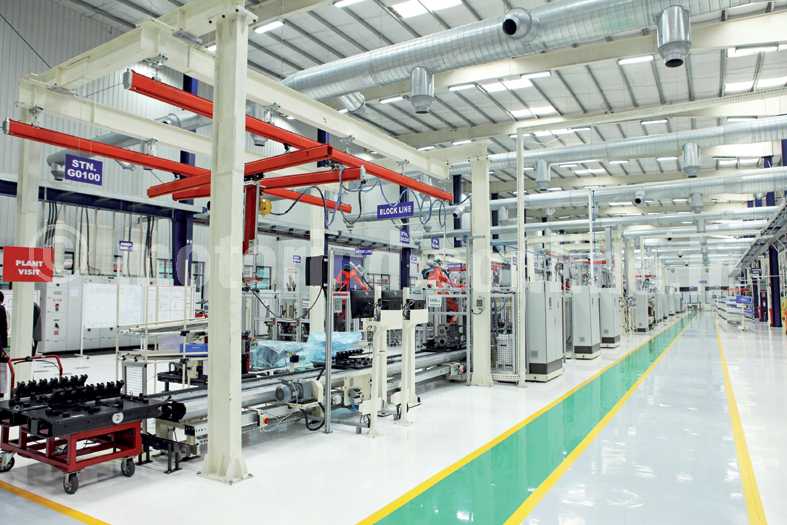
In just three years of signing the JV agreement, VECV had nearly doubled the sales of its trucks and buses from around 25,000 units to around 48,000 units. The company currently holds close to 30 per cent share in the light- and medium-duty truck segment and five per cent share in the heavy-duty truck segment which will be one of its main focus areas moving forward.
In buses, VECV has more than doubled its market share over the last five years. “We have been performing well in the bus market. Our market share has gone up from 5.7 per cent in 2009 to 12 per cent in 2012 and further improved to 14.5 per cent in YTD June, 2013. While the bulk of these numbers came from our traditional strengths in the light and medium duty segments, HCV sales have also begun to contribute. We have had good breakthroughs in State Transport Undertakings with orders of 1,100 and 600 bus chassis from the GSRTC and APSRTC respectively”, pointed out Mr. Aggarwal.
VECV’s is currently setting up a new bus body plant at Dhar, near Indore, which is likely to start commercial production from Q3 FY13. The plant will start with an initial capacity of 7,500 units and will subsequently be scaled up to 15,000 units.
VECV is working on a number of new products across its product range which it plans to introduce from the end of the current year through 2014 and into 2015. “We are using relevant technology from Volvo for our new product range, in the cabin as well as the engine. As part of our growth strategy, we continually invest in product enhancement and improvement to meet the rising consumer expectations”, he said.
On the export front, VECV has strong presence in South Asia and some countries in Africa and the Middle East where its current product range is suitable. In 2012, the company exported 2,501 trucks and buses which constituted around four per cent of its sales. Moving forward, based on the potential of the markets, the ratio of exports in its total sales is expected to touch nearly 15 per cent.
“We are currently developing more and more country specific products to make inroads into other emerging and developed markets of SEA and Africa, based on which we can be present in more countries. We will also use the distribution network of Volvo Group in these countries, so the medium- to long-term potential for exports is very high”, he added.
If one could call the five years of the Volvo-Eicher partnership as glorious, then the next few years promise to be even better. VECV has been focused on investing in the right areas with a long-term vision of transforming the commercial vehicle space in India. The company is perfectly positioned to race ahead once the country’s CV market gathers momentum which is certain to happen sooner than later. In five to ten years’ time, the rewards of VECV’s efforts thus far are poised to catch the limelight.
Synergies under the JV
• Processes and systems. (Product development processes like global development process, after market processes, quality processes like starting CSI 1 initiative, productivity management initiatives, etc.)
• Technology transfers (Cabin, Engine, EMS)
• Setting up of medium duty engine platform for all automotive applications.
• Initiatives in leveraging the international distribution network of Volvo Group.
• Setting up a world class parts distribution centre.
• Company-owned distribution network and workshops.
• Joint development of new vehicle platforms.
• Frugal product development processes to be used more and more for Volvo needs.
• Various synergies in purchasing.
Click here to become a Facebook fan of VECV – www.facebook.com/